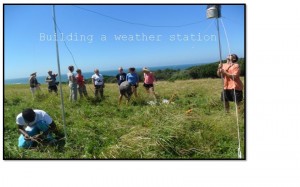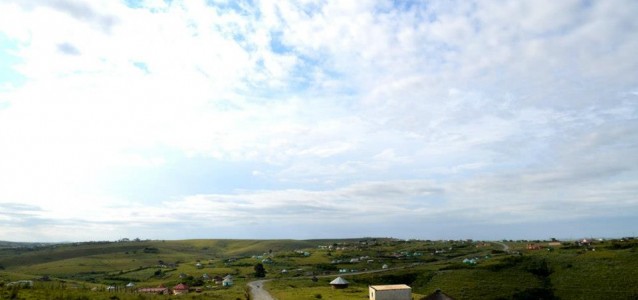The annual fieldtrip to Dwesa Cwebe took place in March this year. Run by the Climate System Analysis Group (CSAG in association with the University of Cape Town) and in collaboration with the Pennsylvania State University, Walter Sisulu University and the University of Fort Hare, the fieldtrip was a great success!
The diverse group of students and staff members spent 6 days in the beautiful and secluded Dwesa Cwebe Nature Reserve in the Eastern Cape. The Dwesa Cwebe Wildlife Reserve lies on the east coast of South Africa, approximately 220km North of East London. The students and staff enjoyed their stay at The Haven Hotel, with amazing views, plenty fun activities, and delicious food!

An assortment of activities took place on a daily basis, with different groups partaking in different activities. Students from the University of Cape Town (Mostly Atmospheric Science Honours students), lead by Professor Bruce Hewitson and Dr. Babatunde Abiodun, concentrated on studying the boundary layer through the release of weather balloons twice a day, one at 6am and another at 3pm. Students from all four universities assisted CSAG staff set up weather stations and a SODAR (wind velocity profiler).
The core project undertaken by the students from UCT was quite a challenge – to design and execute an experiment that measured the extent and temporal progression of the local sea-breeze circulation. As a group, the students were required to design the experiment and then present the experimental design to the staff for comment. The students were then required to actually perform the experiment, analyze the data and present the findings to the staff.
This project provided a unique perspective into the practical component of research. Prior to this fieldtrip, many of the students had had no experience in atmospheric fieldwork. By undertaking this project, it showed just how difficult it could be to design a defensible experiment with limited resources as well as the difficulty in getting accurate and reliable measurements. Students also learnt the hard way that things don’t always go according to plan!
The students from Walter Sisulu University and the University of Fort Hare focused on studying the Mbashe River, lead by Dr. Kevin Winter and Dr. Piotr Wolski. The study aimed to identify the affects of land use on hydrology and hydrochemistry in the tributaries. The students and staff visited different sections of the tributaries measuring water discharges to analyse the basic parameters of the water, and taking samples of diatoms in order to gain an index of biological integrity.
The core collaborative activity where students from all four universities were able to get together and learn from one another came about by means of daily debates on prearranged topics, readings and TED Talks. These evening debates were held every night after dinner and proved to be a crucial activity where insightful comments and viewpoints were made from diverse perspectives about issues South Africa is currently facing.
The students also had the opportunity to visit a local basket weaver and beader, where they enjoyed watching, learning, and tempting their hands at craft. Some attempted the complex skill of weaving, but for many the challenge proved too difficult!
The field school concluded with the annual Hewitson Glider Challenge. The students were arranged in teams that included members of all four universities, and were then tasked to build their own glider.
Once completed and once the weather conditions were perfect – the goal was to land the gliders into the 18th golf pole!
The collaboration and integration between the different groups made the trip fresh and exciting. Many new friends were made and strong connections were established.
